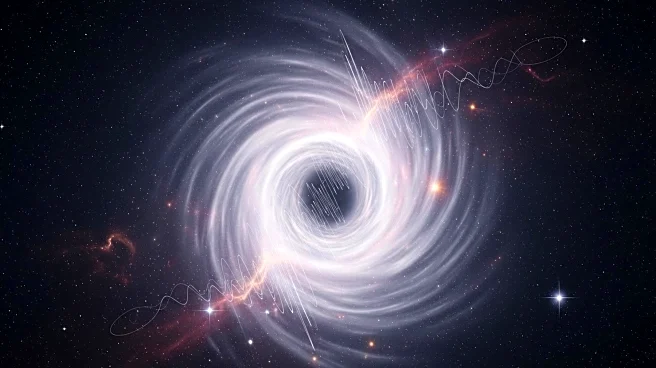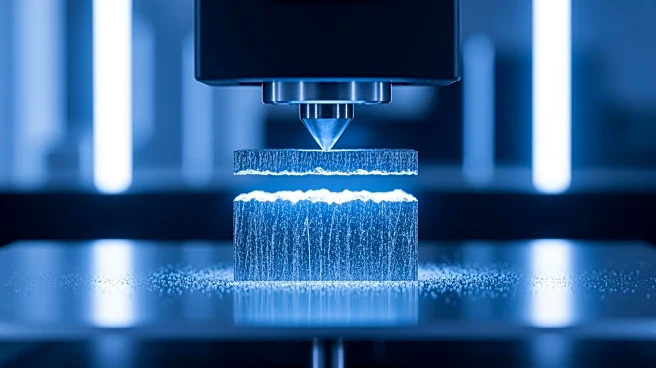What's Happening?
In a significant scientific development, physicists have detected a brief gravitational signal, known as GW190521, which may indicate the existence of a collapsing wormhole. This signal was recorded by the LIGO and Virgo observatories in May 2019 and initially thought to be the result of two black holes merging. However, recent discussions led by physicist Qi Lai propose that the signal could be a gravitational echo from a collapsing wormhole. This theory challenges current understandings of space-time and general relativity, potentially verifying speculative predictions about wormholes. Wormholes, theoretically proposed by Albert Einstein and Nathan Rosen in 1935, are considered unstable structures that could collapse under their own gravity unless sustained by matter with 'negative energy,' a concept not yet observed in nature.
Why It's Important?
The potential confirmation of a wormhole's existence would revolutionize our understanding of general relativity and space-time. If validated, this discovery could affirm that general relativity allows for shortcuts through space-time, supporting the existence of space-time tunnels. Such a breakthrough would transform modern cosmology by suggesting that the universe might be interwoven with passages linking distant regions or even parallel universes. Additionally, the implications for time travel are profound, as stable wormholes could theoretically function as time machines, allowing exploration of the universe's past and reconsideration of causality. This discovery could reshape our perception of the universe and our place within it.
What's Next?
As researchers continue to analyze the GW190521 signal, the broader implications for gravitational wave research are immense. Future advancements in gravitational wave observatories could provide clearer insights into the nature of these signals. The ongoing exploration of gravitational waves promises to deepen our understanding of space-time, black holes, and perhaps even the existence of wormholes. These efforts may ultimately reshape our view of the universe and our place within it. The scientific community is expected to further investigate the potential of wormholes and their implications for cosmology and time travel.
Beyond the Headlines
The potential discovery of a wormhole could fundamentally alter the foundations of modern cosmology. Should wormholes exist, the universe might be a network of interconnected regions, defying the traditional notion of isolated cosmic bodies. Such structures would challenge the very fabric of our understanding of the cosmos, suggesting that distant regions could be linked by these theoretical passages. Moreover, the implications for time travel are equally profound, with scenarios where stable wormholes could function as time machines, allowing exploration of the universe's past.











